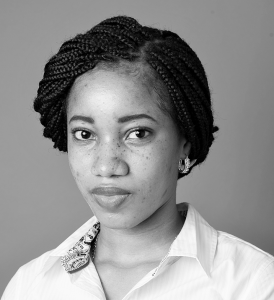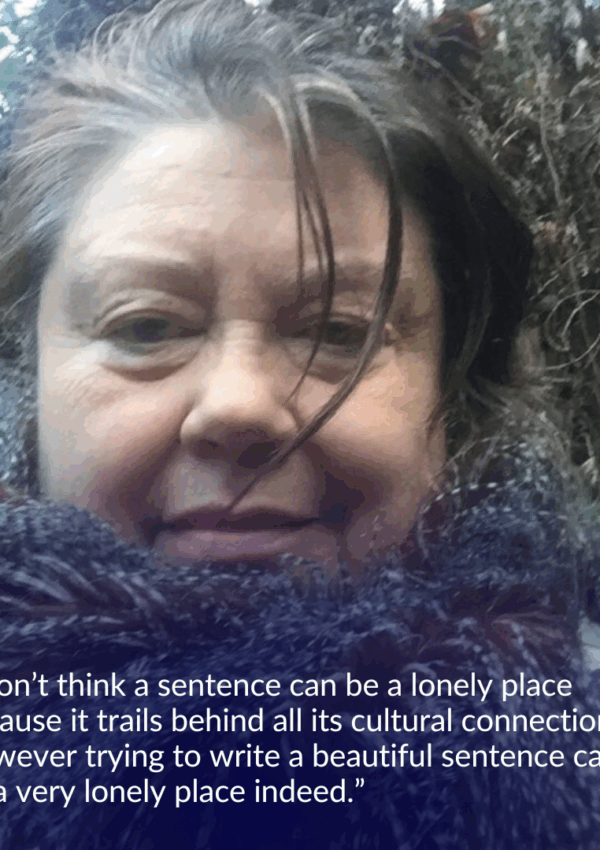In poetry and literature, I am most critical of the languages, styles, and techniques that many upcoming Nigerian writers employ these days. Because some of these writers do not have concrete foundation in poetry written by their own ancestors, it is normal for them to mimic the “European style of poetry” in their works. Although it is an honor to Shakespeare’s legacy when his works are taught in high schools all over the world, I think that shoving those “hard to interpret” poems down the throat of newly-born writers kill their joy in poetry reading and writing. It also tampers with their creativity and because of the boredom they experience from his works, they create the assumption that poetry is all about twisting words, hiding meanings, and making reading stressful for a reader. For the exceptional ones who survive this critical period of learning, discovering poetry as literature that they and other readers can understand or find relatable to their daily lives becomes a surprise.
Having said this, it is a pleasure to introduce spectacular and incomparable Nigerian writers whose works have paved way for the rediscovery and rejuvenation of Nigerian poetry, and poetry all over the world. Tolu Akinyemi with his tickling humor, Kukogho Iruesiri with his poetic analysis of reality and societal matters, Seye Kuyinu with his relatable honesty about his experiences, Ijeoma Umebinyuo with her incomparable reclamation of womanhood, and Kanyinsola Olorunnisola with his exquisite brilliance in writing Nigerian history and colonialism, amongst other 21st century writers have proved their ability to rekindle the light of Nigerian poetry and literature. What pleases me about these writers and their works is that although they follow some of the pre-existing ways of poetry-writing, they accommodate their readers and command poetry to simplicity. Their works convey meanings and pass messages to the readers very effectively. They stand out to me because amidst the chaos and boredom that being poetic can cause to hinder self-realization in writing, their works prove the possibility of being unique and writing what is true to oneself. This truth, however, riots against conforming in the literary world what only European poetry gave us over a thousand years ago.
The topic “Impeaching White Jesus” seeks to defy this normalcy and entertain endless possibilities of uniqueness and simplicity amongst upcoming Nigerian writers. I will love to see simple poetry, humorous poetry, silly poetry, and less poetic poetry amongst Nigerian writers. I will love to see poetry that does not look like a bunch of misplaced words fitted as puzzles on a sheet of paper. I will love to see poetry that conveys meanings and makes sense to readers. I will love to see poetry that attracts analysis and criticisms rather than attention for ordinary likes and comments on social media platforms.
Speaking from experience, when I wrote my first collection of poems: Heartbeat (published in 2015), just like Kanyinsola Olorunnisola wrote in a proem for my upcoming anthology, my first attempt in poetry through Heartbeat “was riddled with a kind of uncertainty; one usually found in precocious writers trying to find their voice amidst the conflicting paroxysm of influences.” However, he states that in my new collection of poems that will be published in August this year, he encounters “a poet who does not only revel in the new-found confidence of her scribbling but also in the lush glow of her womanhood.” I hope that Nigerian writers also find this kind of confidence in writing what is different from the Literary White-Jesus (my metaphor for the normal expectations that European poetry created for all forms and types of poetry across the globe).
In my admiration for the rediscovery of Poetry in Nigerian Literature, and with utmost enthusiasm, I commend the efforts of Sprinng Literary Movement (www.sprinng.org). Sprinng Literary Movement is a Literary Society for Promotion Revitalization and Improvement of the New Nigerian Generation in Writing and Literature. This movement was founded in 2016 by Kanyinsola Olorunnisola, as a multi-media and online platform which specializes in the promotion and celebration of the riches vested in Nigerian Literature.
Ever since its foundation, it has gotten nation-wide attention, with views spanning over 1500 per month. It boasts of over 150 Nigerian writers dedicated to its cause. Through its website, it posts reviews, poems, stories, essays, and fiction, all of which engender the soul of the national literature. It broadcasts Nigerian writers to be recognized and appreciated by readers and lovers of literature. Despite being relatively young, the fame of Sprinng Literary Movement has burned through the fabric of national consciousness and is fast becoming the primal reference point for a recognizable literary movement in the most populous black nation. (Read more about Sprinng Literary Movement at www.sprinng.org).
From last year, this movement has accommodated the works of Nigerian writers and in the middle of 2017, they will be working towards a new goal: to challenge the preconceived ideas that these writers have about poetry. Contests and anthologies guided by themes will be used to encourage these writers to think and write without the box of what is considered as “normal poetry.” This year, this movement aims to remold the creativity of the writers to their uniqueness. With concentration on the 150 writers in the movement there shall be a transformation of Nigerian poetry whose works will share of the glory and applause that writers like Kukogho Iruesiri, Seye Kuyinu, Tolu Akinyemi, Ijeoma Umebinyuo and Kanyinsola Olorunnisola have received.
With reference and respect to the fathers and ancestors of Nigerian poetry that paved way for us, some of who are: Wole Soyinka, Chinua Achebe, Cristopher Okigbo and Odia Ofeimun, I keep alive the hope I have for rekindling the fire of Nigerian poetry and literature.
 Shoola Oyindamola is a writer, a book reviewer, a feminist, and a blogger. She is also the Co-Founder of Sprinng Literary Movement, a nonprofit organization dedicated to curating, revitalizing, and transforming Nigerian literature. She published her first collection of poems titled Heartbeat in 2014. Heartbeat is available online via Amazon, Barnes and Noble, and Author House Bookstore.
Shoola Oyindamola is a writer, a book reviewer, a feminist, and a blogger. She is also the Co-Founder of Sprinng Literary Movement, a nonprofit organization dedicated to curating, revitalizing, and transforming Nigerian literature. She published her first collection of poems titled Heartbeat in 2014. Heartbeat is available online via Amazon, Barnes and Noble, and Author House Bookstore.
Shoola’s poetry appears in Black Fox Issue 14.




The first time I saw your writing, way back, I asked you a question:why is your writing this simple? Today, I understand better. By the day, you are opened to that concept that had always hidden in you, begging for expression. Today, I learn from one who had learnt from me. Kudos Oyin.
Thank you so much Mr. Ceejay. I cannot appreciate you enough for the time and energy that you invested in helping me to discover myself and poetry in my own way.
Good one there, Oyin. I hope that more writers see this, and feel less pressured to write a ‘ certain way’.
Thank you.
The title of the post is quite funy but real. The white Jesus needs to be impeached, but not in literacy alone. Can we say the average Nigerian has low self esteem? We need to embrace whom we are and be bold enough to share our belief systems without succumbing to the white man’s ways. Cheers!